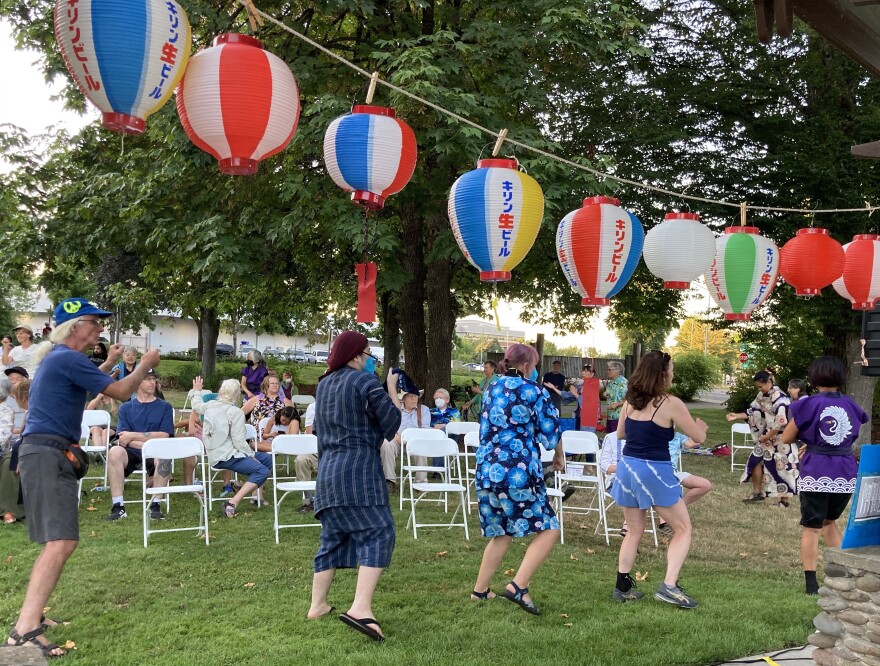Eugene’s memorial for the victims of Hiroshima and Nagasaki returned August 8. This year, its calls for denuclearization were heightened amid the Ukrainian-Russian conflict.
The sound of Taiko drums rang through Alton Baker Park, commencing a ceremony which included poetry, dance and speeches from Eugene’s Japanese-American community.
In August 1945, the U.S. dropped two nuclear bombs on Japan. While many strategists say this shortened the Second World War, the bombs killed hundreds of thousands of civilians, and ushered in an era of nuclear proliferation.
Organizers gathered to honor these losses through art, and to promote a future where nuclear warfare never returns.
Reverend Mark Unno’s relatives were hibakusha, those affected by the radiation.
“The problem of radiation and the effects of atomic bomb testing, as well as the development of nuclear weapons is not isolated to a point in history over 70 years ago. But it's something that continues to affect people's lives. And now, this raising consciousness is more important than ever before.”
Kitty Piercy, the former mayor of Eugene, cited growing conflicts and threats to democracy across the world. During the memorial, a banner spelling out “No War” hung amongst the decorations.
“Peace is a very fragile thing. You can't turn away from it. You can't not tend to it. You have to be working on it all the time.”
Presenter Mike Takahashi read a letter from Kazumi Matsui, the mayor of Hiroshima.
“As long as we cling to the nuclear deterrence theory, based on the assumption of rational decision making by leaders, humanity will continue to live in fear of the dangers posed by nuclear weapons.”
Presenters called on federal legislators to direct funds away from nuclear weapons, opposing Pentagon plans for an additional $1.7 trillion over the next 30 years.
Activist Michael Carrigan is leading a public pressure campaign to prevent nuclear annihilation. He said activists must engage people in creative ways.
“It's not just doom and gloom, because that can have an impact on getting people to take some action right then, but it's not sustainable.”
Aimee Yogi is with the Japanese American Association of Lane County, which helped produce the event. She handed out origami cranes, a token of health adopted by activists. It’s associated with Sadako Sasaki, a girl who was in Hiroshima when the atomic bomb fell. She completed 1,000 cranes before her death in 1955 from radiation-related illness.
At the memorial’s end, a Taiko procession led the crowd to a pond, where they floated lanterns to guide ancestors. Above all else, Carrigan says the event aimed to build a community around peace.
Here’s Takahashi, on behalf of Mayor Matsui:
“In a global culture, where peace is a universal value, world leaders will find the courage to correct their policies. I would like to ask all of you to act in solidarity with us as we strive to eliminate nuclear weapons and realize lasting world peace.”



